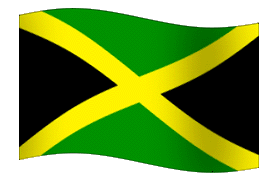



|
|

|
JamaicaJamaica, the third largest Caribbean island, was inhabited by Arawak natives when it was first sighted by the second voyage of Christopher Columbus on 5 May 1494.
Columbus himself was stranded on Jamaica from 1503 to 1504 during his fourth voyage. The Spanish settled in Jamaica in 1509 and held the island against many privateer raids from their main city, now called Spanish Town, which served as capital of Jamaica from its founding in 1534 until 1872. In 1655 Jamaica was conquered by the English, although the Spanish did not relinquish their claim to the island until 1670.
Jamaica became a base of operations for privateers, including Captain Henry Morgan, operating from the main English settlement Port Royal. In return these privateers kept the other colonial powers from attacking the island. Following the destruction of Port Royal in the great earthquake of 1692, refugees settled across the bay in Kingston. By 1716 it had become the biggest town in Jamaica and was designated the capital city in 1872. Until slavery was abolished by Parliament in 1833, the island sugar plantations were highly dependent on slave labour, based on Africans who initially were captured, kidnapped, and sold into slavery from peoples of West and Central Africa. By the eighteenth century, sugarcane became the most important export of the island.
slaves arrived in Jamaica via the Atlantic slave trade during the early seventeenth century, the same period when the first enslaved Africans arrived in North America. By the early nineteenth century, people of African descent greatly outnumbered ethnic Europeans. Due to the harshness of the conditions, there were many racial tensions. Jamaica had one of the highest number of slave uprisings of any Caribbean island.
After the British Crown abolished slavery in 1834, the Jamaicans began working toward independence. As the island still had a strong agricultural economy, planters imported East Asians as indentured labourers for many years. Since independence in 1962, there have been political and economic disturbances, as well as a number of strong political leaders.
|
San Francisco California |

|
Created on: 2014.12.10
Published on: 2015.01.06 |